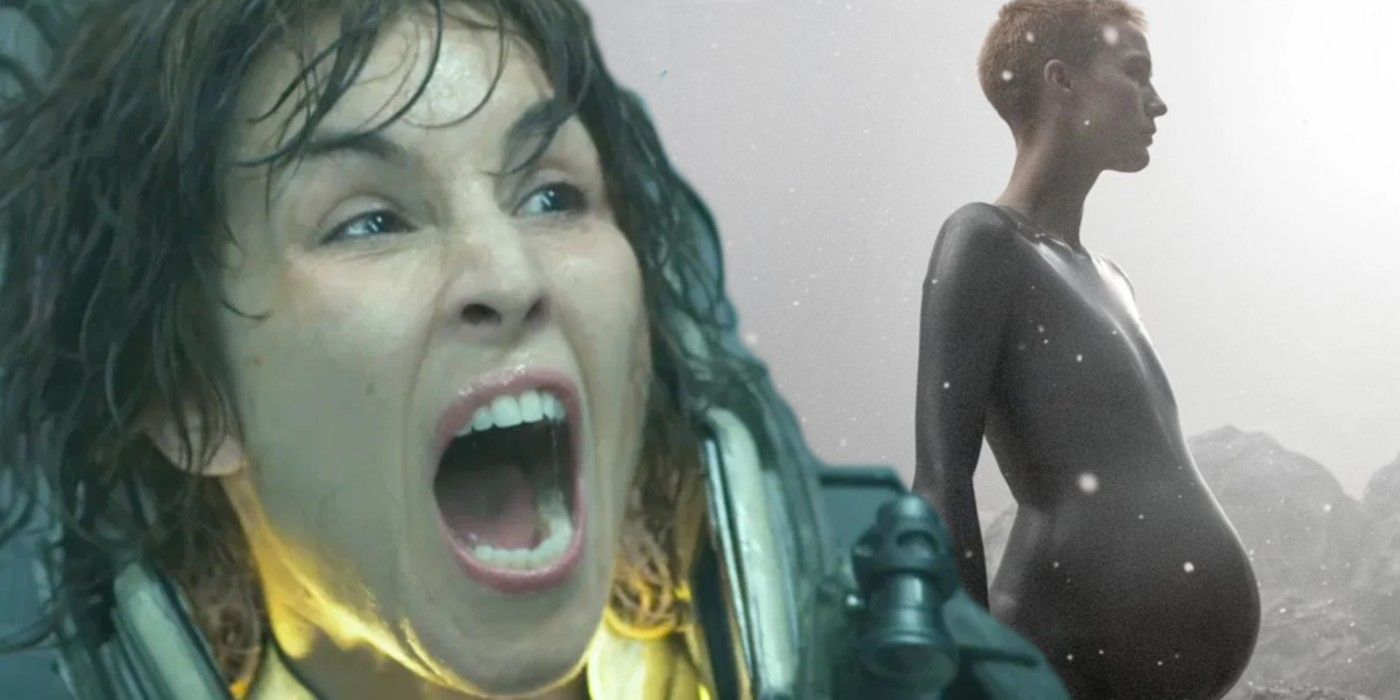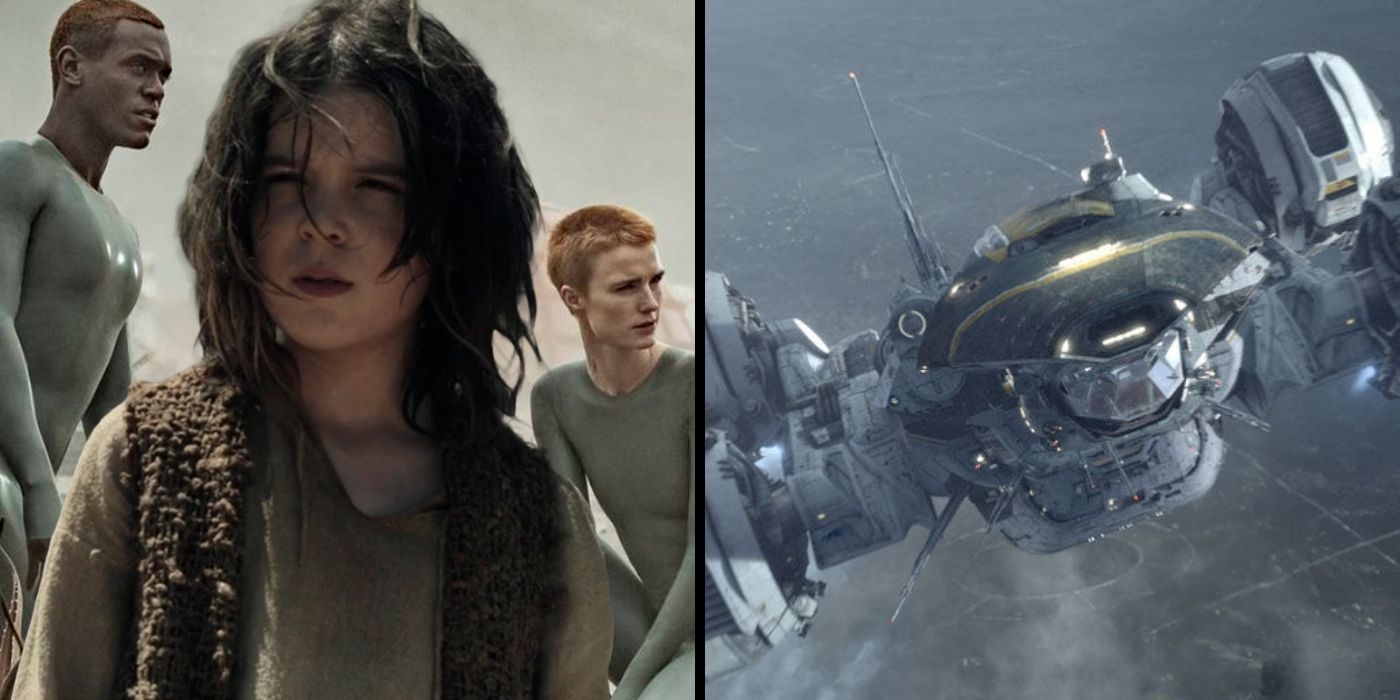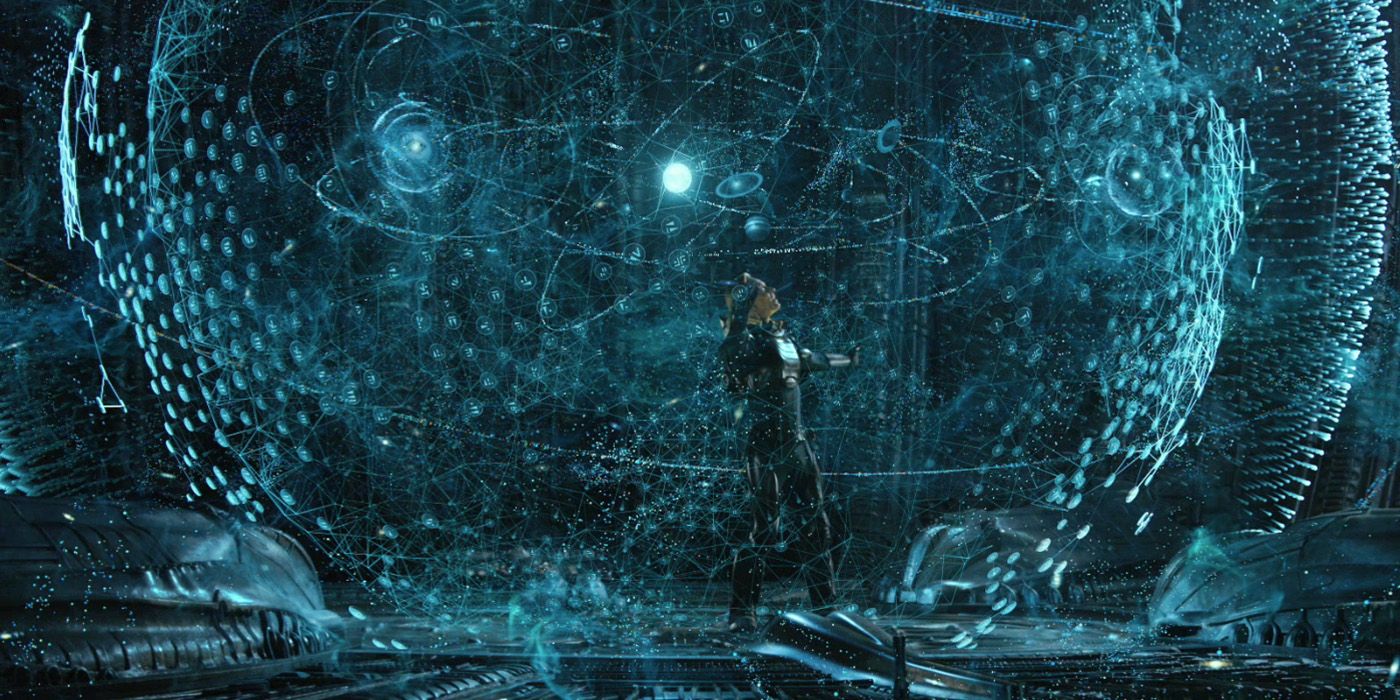
Raised by Wolves season one and Prometheus share a creator in Ridley Scott, so it should be no surprise that they also share some story and plot elements. One such commonality is that Mother's story in season 1 of Raised by Wolves can be seen as Shaw's story in Prometheus but in reverse. Mother's story is about her parental relationship to her adoptive human children and their mutual struggle to survive. Shaw's story is about her antagonistic relationship to her (and humanity's) so-called creators, a relationship that ultimately turns out to be a fight to the death.
Looking at these stories in this way shows how Mother's story is a reversal of Shaw's: Mother strives to be a dutiful parent and discovers that she might not be up to the task, whereas Shaw strives to identify her cosmic parentage and discovers that said parentage might not be interested. To put the reversal more succinctly, Mother's role is parent, while Shaw's role is progeny. Furthermore, Mother's struggle is far more internal than Shaw's despite Mother being the android: Mother struggles with doubts about her adequacy as a parent, whereas Shaw struggles with an existential threat.
In order for Raised by Wolves season one and Prometheus to be reversals of each other, they must also share some direct parallels, and they share several. In both works, the main character deals with the challenges of pursuing their goal and in doing so, realizes that the purpose of their mission might have been misguided and might ultimately be the opposite of what they expected. Each character discovers that the alien planet might not hold the key to accomplishing their goal, and instead, the planet might be in direct conflict with said goal. Both planets are home to dangerous life forms that are somehow genetically related to humanity, and both are home to a mysterious entity that impregnates the main character with a parasitic organism whose purpose might be to destroy humanity.

Another way that the two stories are reversals of each other is in their general premise. In Raised by Wolves, Mother and Father escape a dying Earth to restart humanity and create a new home for it on another planet; as they pursue that goal, they are confronted with many challenges, including some that might lead to humanity's destruction. In Prometheus, Shaw and her team leave Earth to explore humanity's origins; as they pursue that goal, they are confronted with challenges as well, one of which also might lead to humanity's destruction. The reversal here is that Mother and Father are escaping a dying Earth in order to start humanity anew, while Shaw and her team leave a relatively healthy Earth behind and inadvertently put humanity's very existence at risk.
There are also some very specific story elements that are reversed. In Raised by Wolves, Mother travels to another planet in order to restart the human race and is guided by her atheistic values and beliefs. However, she soon comes to understand that human religion has its usefulness too. In Prometheus, Shaw travels to another planet in order to identify the origins of the human race and is guided by her scientific research as well as her religious faith. However, she soon comes to understand that her faith may have led her astray. The reversal here is that Mother learns about the value of human faith, while Shaw learns the perils of it. Both discoveries act as epiphanies for their respective characters and drastically change their worldviews.
Another example of a reversal is Mother's mission in Raised by Wolves and Shaw's in Prometheus. Mother's mission is to restart humanity, whereas Shaw's is to uncover its true beginnings. It might not seem like it, but this is a huge reversal: Mother's mission is selfless while Shaw's is selfish. Mother doesn't want to restart the human race for herself or for her own gain; she wants to restart it because it’s the right thing to do. Shaw, on the other hand, wasn't motivated by the right thing to do; her main concern was advancing her research and getting answers to her personal questions about her faith.

Mother and Shaw are both lured to their respective alien planets by unknown entities, but neither of them realized it. Although not technically a reversal, the difference here is that Mother believes she has been sent by her creator, Campion Sturges, and Shaw believes she has been invited by her creators, the Engineers. In both cases, however, their beliefs are proven wrong, and they realize they were horribly mistaken about the true reasons behind their missions. By the end of Raised by Wolves season one, it has become quite clear that Mother and humanity have actually been lured—not merely sent—to Kepler-22B. Similarly, by the end of Prometheus, there is no doubt that Shaw was not invited, but lured, to LV-223 in a plot by the Engineers to destroy humanity.
Possibly the most important reversal between these two works is that Mother was lured to be impregnated by the mysterious entity, whereas in Shaw's case, her impregnation was accidental. This is another example of not a true reversal, but a difference that speaks volumes about each story. It turns out that Mother lives up to her name after all, but she is left with the unsettling question of what exactly she is the mother of. Similarly, Shaw ends up finding humanity's creators but realizes they would also be humanity's destroyers if given the chance. She is left with the question of why the Engineers wanted to destroy humanity.
Despite the reversals outlined above, Raised by Wolves season one and Prometheus are very similar works. Naturally, this has a lot to do with their sharing a creator in Ridley Scott, who has a demonstrated penchant for working with stories that explore humanity's origins as well as its future. Ultimately, both of these works are about the mysteries of the human past as much as they are speculations about humanity's future. These mysteries and speculations are what make them so thrilling and compelling. More significantly, however, they are about how the past (and possibly how the future) informs the present and how that information can be used as either a source of hope, horror or both.
from ScreenRant - Feed https://ift.tt/2J0ru8N

0 Comments